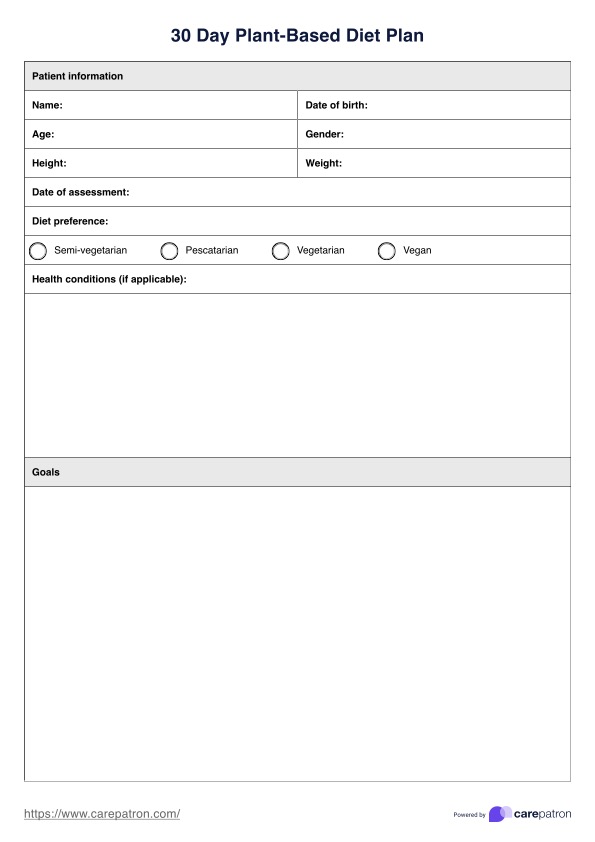Yes, bananas are an excellent choice for a plant-based diet. They provide essential nutrients like potassium and fiber, making them a versatile and healthy snack or meal addition.

30 Day Plant Based Diet Plan
Use Carepatron's free 30 Day Plant-Based Diet Plan PDF and promote well-balanced, plant-focused nutrition for your patients.
Use Template
30 Day Plant Based Diet Plan Template
Commonly asked questions
No, eggs are not included in a plant-based diet, which focuses on plant foods. Instead, alternatives like tofu or chickpea flour can be used in recipes requiring eggs.
A plant-based diet excludes animal products such as meat, dairy, and eggs. Highly processed foods with added sugars and artificial ingredients should also be limited.
EHR and practice management software
Get started for free
*No credit card required
Free
$0/usd
Unlimited clients
Telehealth
1GB of storage
Client portal text
Automated billing and online payments











